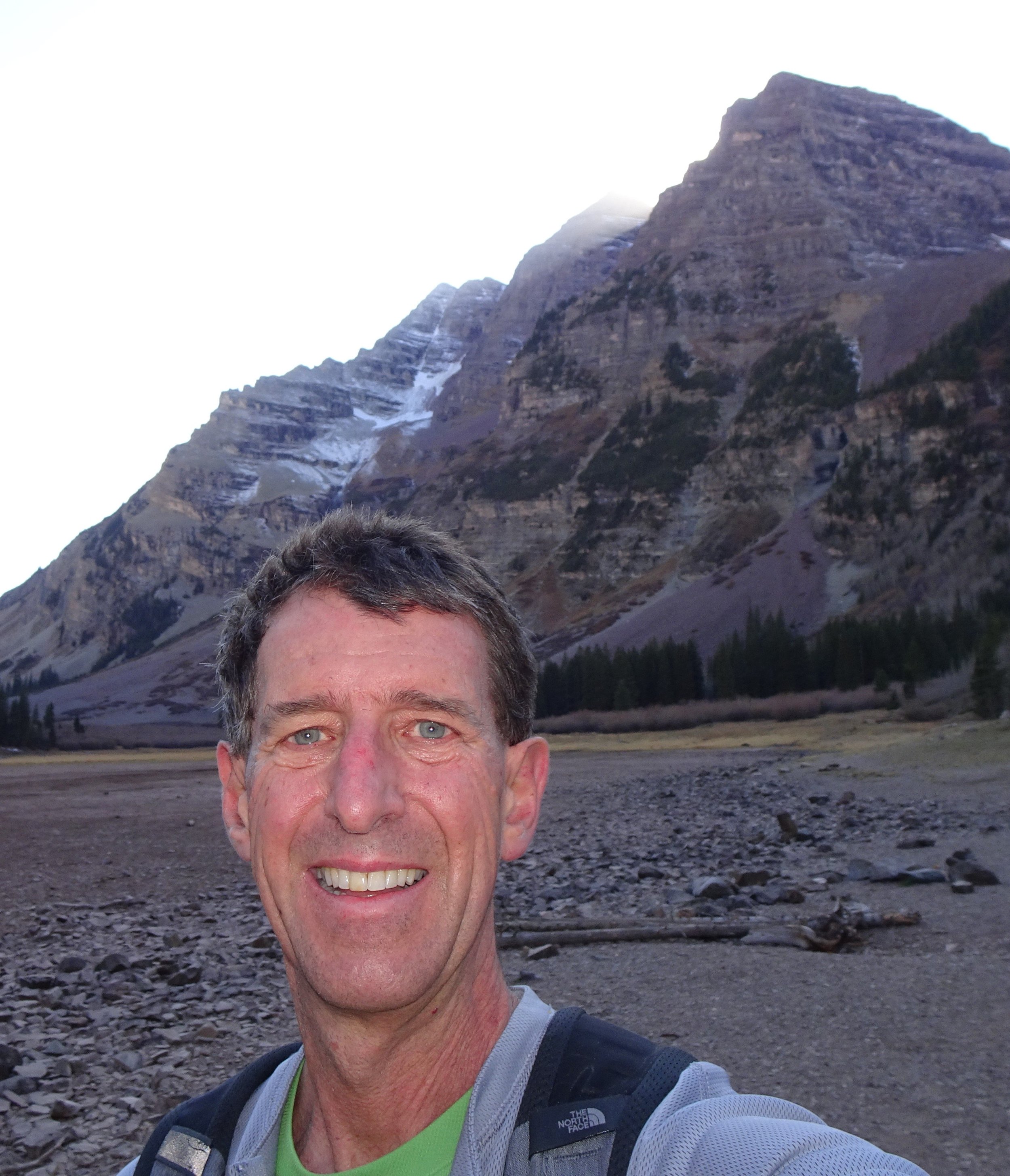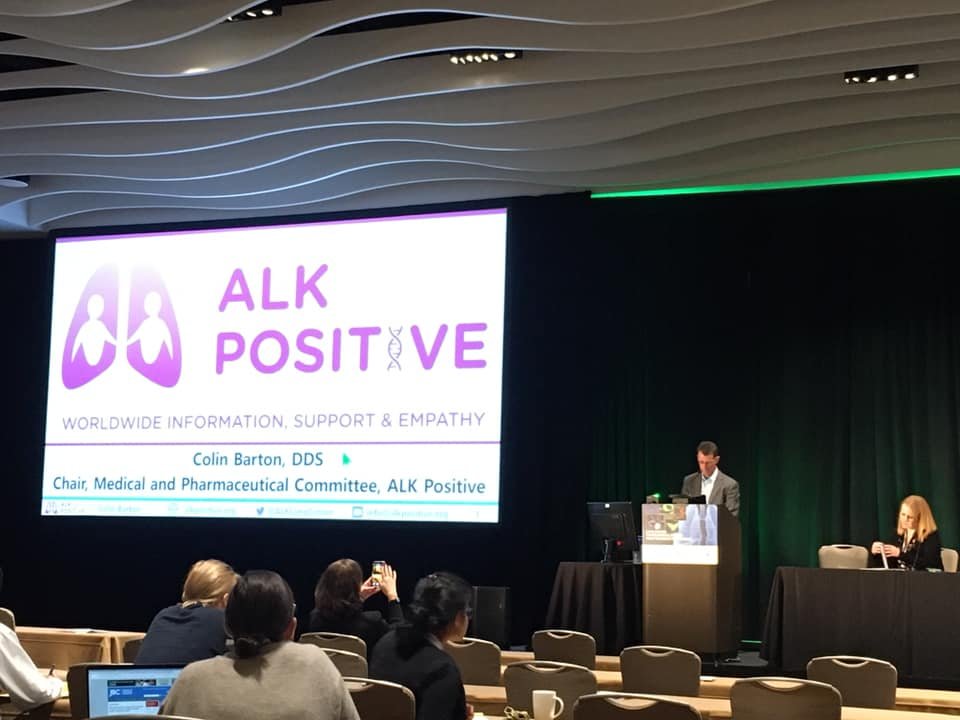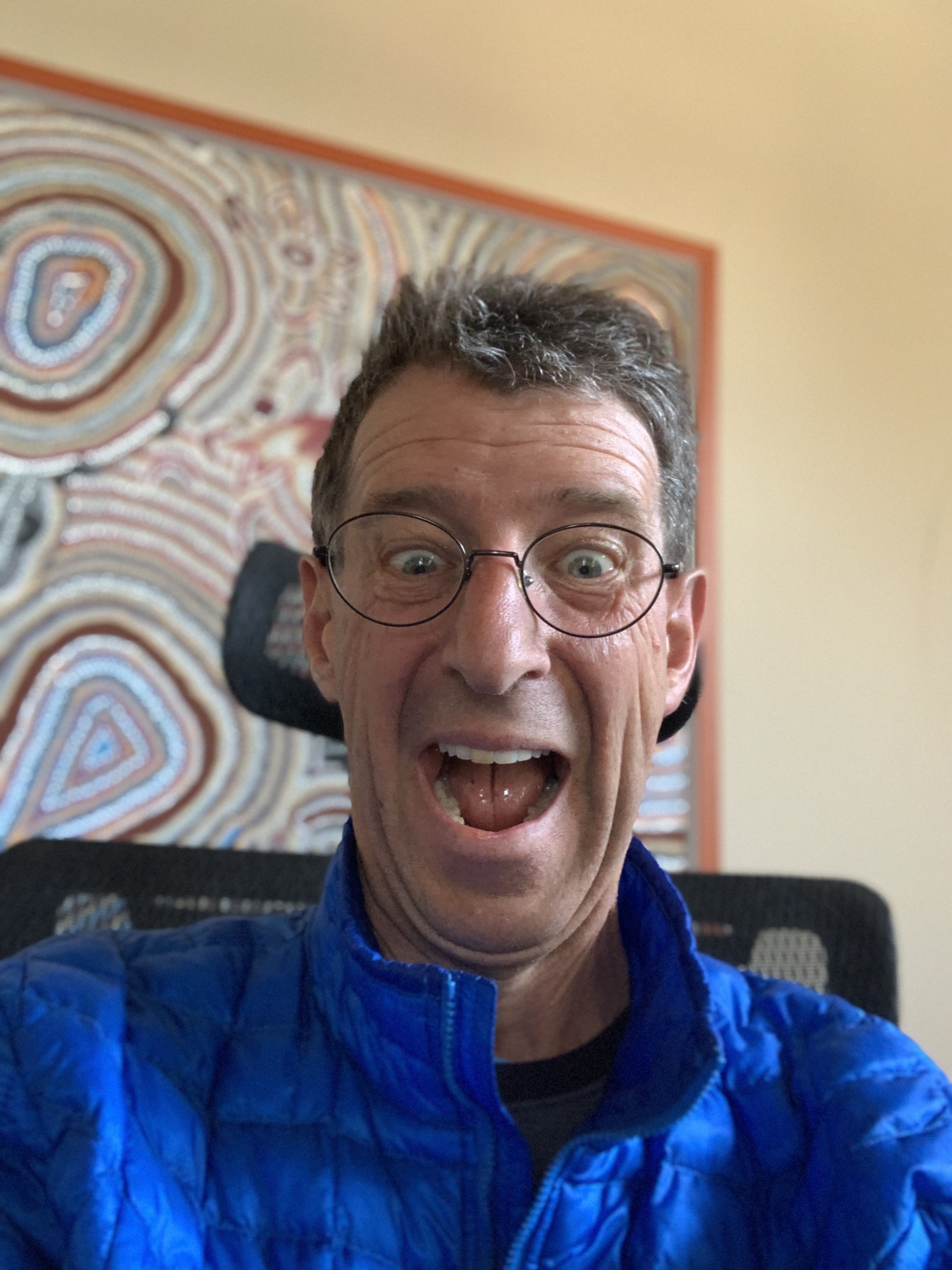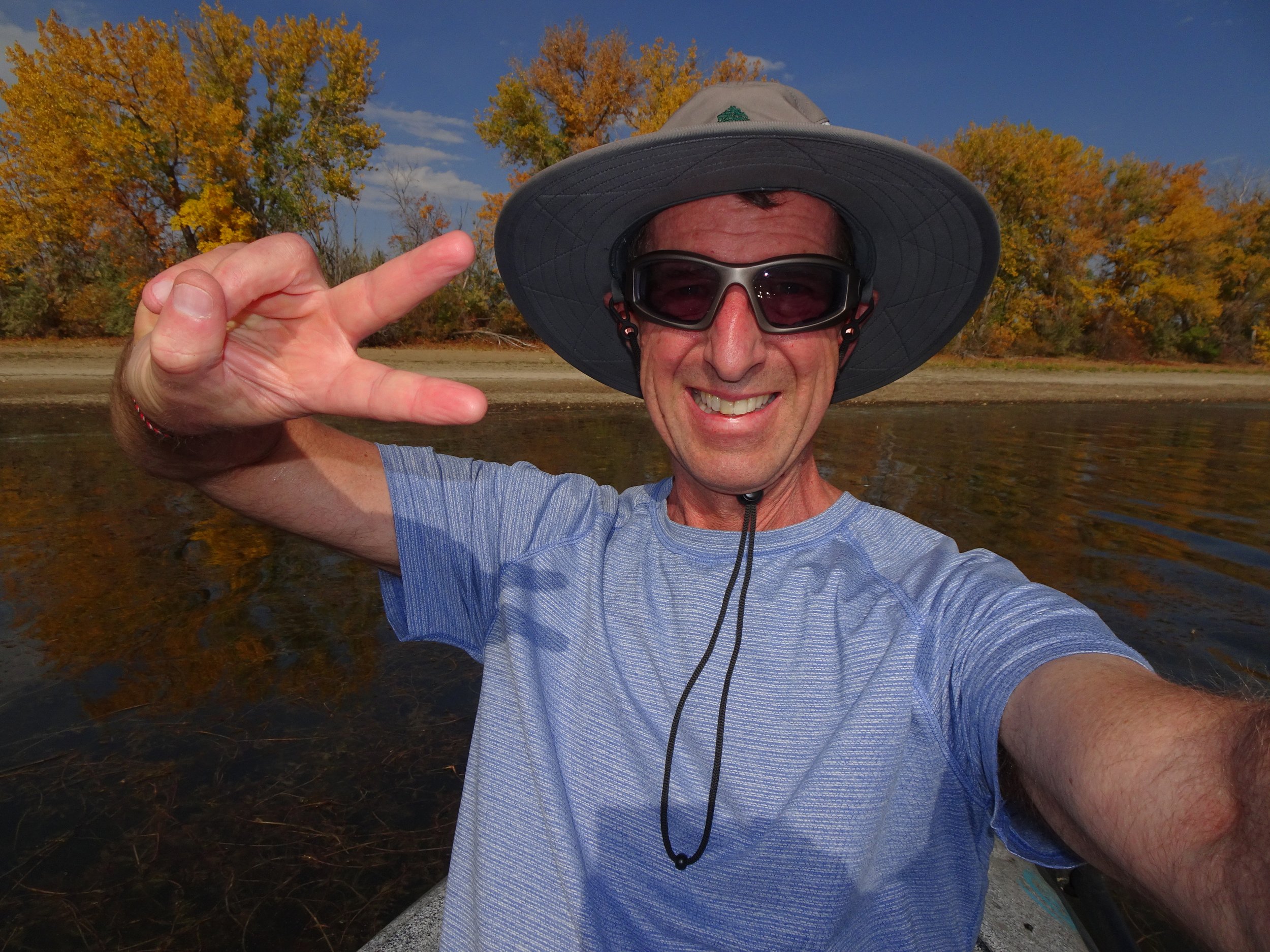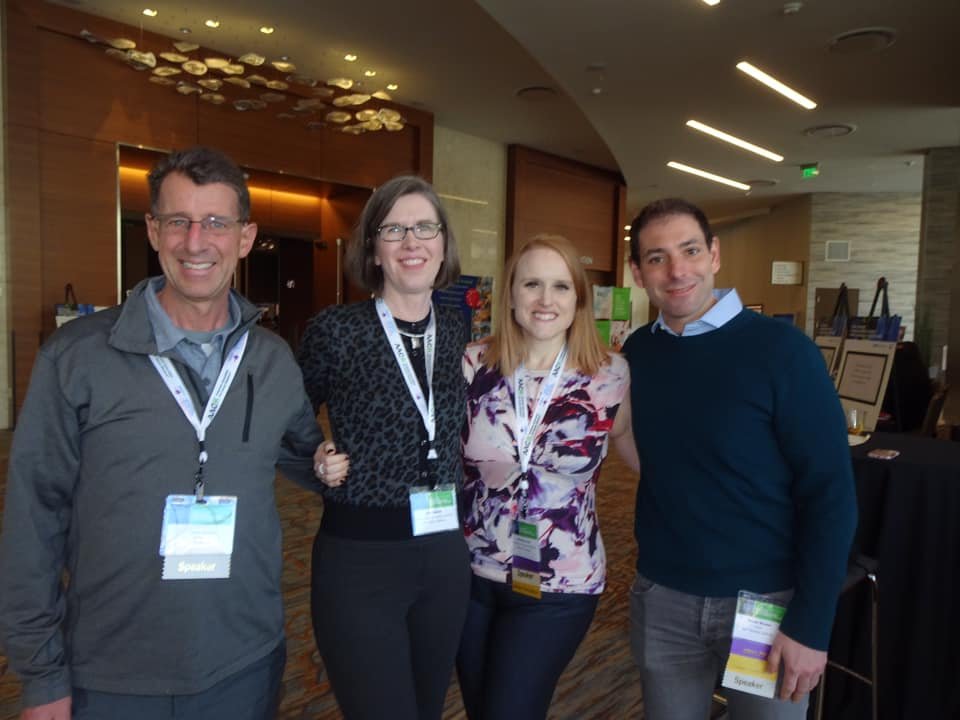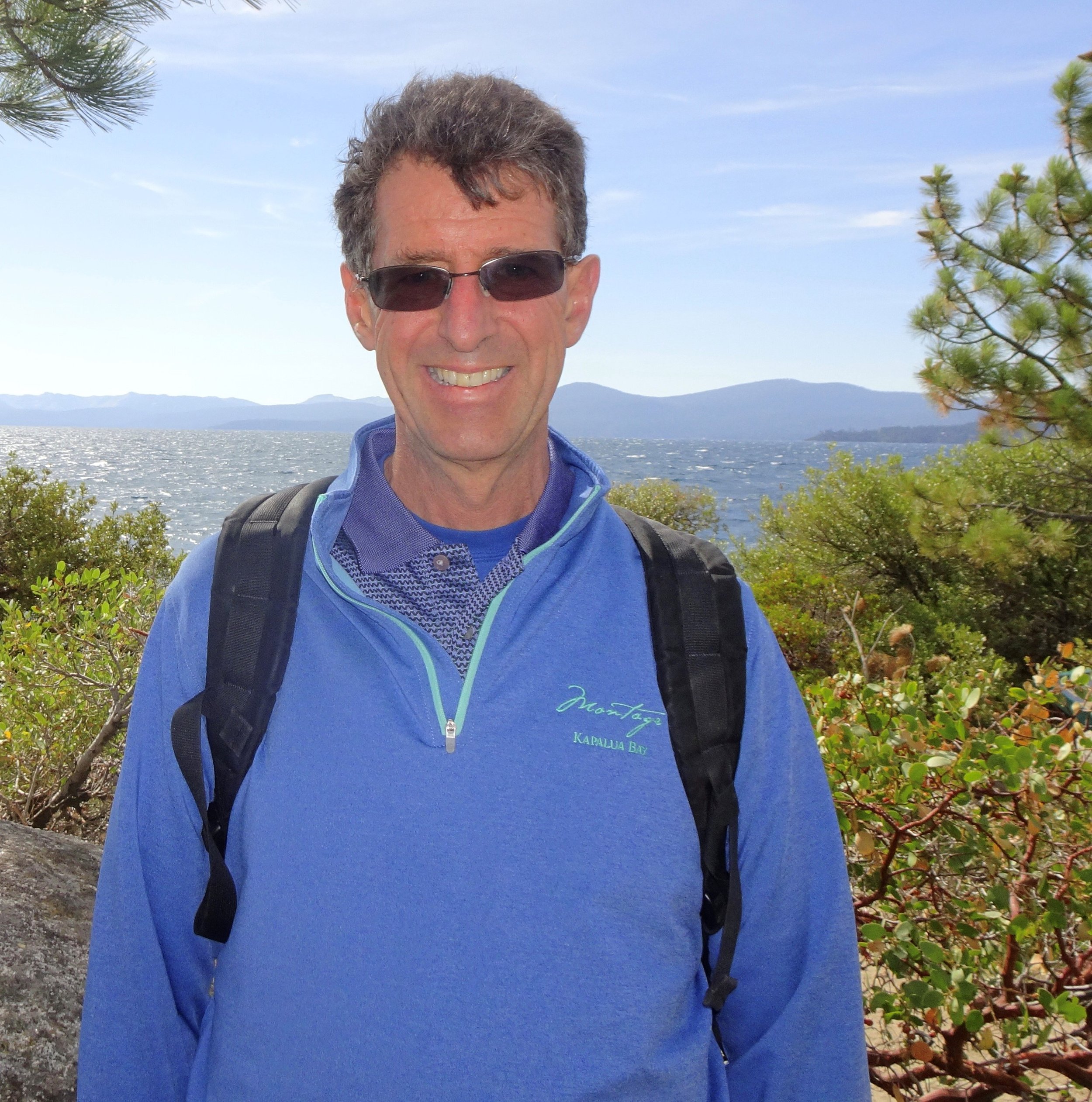Patient Spotlight: Colin Barton, Denver, Colorado
Editor’s Note: We had a discussion with long-time member, Medical Committee Chair, Board member and donor, Colin Barton, about his background and personal history, his attitude to life, the achievements of the Medical Committee which he has been chair continuously since 2017, and his hopes and excitement for the future of ALK-positive cancer treatments.
1) Give us a brief background of your life. Where are you from originally? How did you end up in the U.S. with a successful career as a Dentist?
My mother was born in Austria and my father in Hungary, and as teenagers they both had to flee the Nazi invasion without their parents. Three of their four parents were never seen again, and my father’s mother ended up in New York City. My parents ended up in Sydney, Australia, where they met and married in the early 1950’s, and I was born there in 1958. They never talked about their childhood to me as I was growing up. I have one brother who is 6 years younger than me.
I was a very quiet, shy child, but I did enjoy walking in the nearby bush land, and later I became passionate about competitive sailing. I did well in school, and I graduated as a dentist at age 22 in 1980. I took one year off to travel the world with a backpack in 1982 and met my to-be wife and life partner, Barbara, in Los Angeles, California that year. She moved to Australia and we married there in 1984. I bought my dental practice in Sydney in 1985, and we lived there until 1995, when we moved with our 5-year old son to Denver, Colorado, so that Barbara could be closer to her aging parents in Santa Fe, New Mexico, (my parents had passed by then). We have lived in Denver since then, and I bought into a dental partnership in 1996. I worked very hard (maybe too hard) as a general practice dentist my entire career and retired in 2015 after 35 years.
2) Can you share a little about your cancer journey – how and when were you diagnosed? Who is your oncologist (or oncology team)?
I had always been remarkably healthy. From the age of 15 until diagnosis at age 57, I had not a single sick day off work or school, except for sporting injuries!
I retired in April 2015, and in November I developed a cough that progressively worsened. I finally went to my general doctor in January 2016. She said it was probably a leftover from a cold I caught from a friend, but I had to come back in 2 months if it had not improved. In March I was bending over, and I had a sudden excruciating pain in my lower back. Even after a week of rest and visiting physio, the pain had not improved, so I visited my doctor again with both the cough and the back pain. She ordered a chest x-ray (of course not thinking cancer), and later that day I was told to come in for a scan to check out something showing on the x-ray. I had the CT scan, and they saw a solid mass in my upper left lung. They ordered a PET scan, and that showed additionally a large mass in my lower spine where my back pain was. Pain explained! The pulmonologist would not risk a biopsy of the lung mass due to its location, so they did a biopsy of the mass in my L3,4,5 area of the spine. That showed the origin as lung cancer.
I was referred to a local oncologist at the community hospital. She ordered a port to be put in my chest so I could start chemo infusions. I consulted Dr. Google, and found that stage 4 lung cancer had a prognosis of maybe 12-18 months (in 2016), with no cure, even with chemo. With the pain I had I did not wish to extend my life by a few months with chemo. At the time, immunotherapy was the great new hope, and, although not a big chance, it had at least some chance of being truly curative. So I said I wanted to try that, and I had two rounds of Opdivo (Nivolumab) immunotherapy. I had seen my father suffer through chemo and whole brain radiation before passing from metastasized skin cancer, and I did not want that route. So, I was started on Opdivo, although I did look into a trial combining Opdivo and Yervoy (Ipilimumab) at University of Colorado. That trial has now led to an approved combination for other lung cancers (not ALK), but at the time I thought it might be too toxic, plus too many hospital visits and too much traveling.
After almost 4 weeks (biomarker testing was much slower in those days), I received a call from my oncologist saying I was ALK-positive, and should change treatments. I had no idea what ALK-positive meant, and I did not even realize that a sample had been sent off for NGS analysis! My biopsy histology was squamous which is very rare for ALK-positive, so I am forever grateful to my oncologist, Dr. Radhika Acharya, for even ordering the molecular biomarker testing. She has been my oncologist since my diagnosis, now coming up on 6 years! She listens to what I want, and, if I have a tricky situation that needs expert assessment from the likes of Dr. Camidge, Shaw, Lovly etc, she is all ears. I am her only ALK patient, and she mostly treats breast cancer.
3) What is something you know now that you wish you knew when you were first diagnosed? And what would you advise a newly-diagnosed patient?
I had been diagnosed with stage 4 lung cancer on April 21, 2016, and 5 days later it was my 58th birthday. I had barely been able to sleep for a month because of the incredible back pain, and I thought I would probably not going to make it to my next birthday. I was crying my eyes out!! I wish I had known of the great new treatments that are available and the amazing research that is improving our life expectancy every year that goes by!! I wish the doctors at that time knew that immunotherapy followed by Crizotinib (my first TKI) can be fatal. I almost died from the toxic interaction.
The biggest things I would advise are to accept the situation, have hope that current and future treatments will work well for you, to treasure every day, and to find an oncologist that is either an expert, or willing to listen to an expert!! Be willing to share your story with others. I was astounded at the incredible support I received from everyone I told my story to. Friends flew in from literally around the world to be with me in my difficult days.
4) How do you tackle living with lung cancer and staying positive on a day-to-day basis, and what advice or tips can you pass along for focusing on life and reducing the anxiety of the unknown?
After an extremely rocky start, within a few months I was pain free. I have been extremely fortunate with my treatment success so far. I consider the cancer a blessing in disguise. I am eating better, exercising more, and I have a renewed purpose in life to make every day count!! I feel I want to strive to do what I can to make the world a better place for others than it would be without me, and I strive to leave the future world a better place for those after me than it would be otherwise. By nature, I have always been content with my situation, no matter how difficult it is. I have always considered myself to be a “quiet achiever”, and I strive to do well without being showy or wanting to be in the limelight. Everyone is different, so what works for me may not be right for others.
I am comfortable accepting what I have no control over and focusing my energy on working hard to make the best of what I can influence. I see anxiety as an unproductive and negative force, so I put it in a little box in the corner to be ignored, and let the bright lights of enjoying the wonders of life and what we can do to make the world a better place fill my world.
I am extremely grateful every day to Barbara for being so caring, supportive, and understanding, always incredibly strong and positive. That has helped!!
5) When did you join the ALK Positive Board of Directors? How did that initially come about, and why did you choose to take on that leadership role?
I was invited to join the ALK Positive Research Review Panel when it was first formed in 2017, and the ALK Positive Outreach Management Group, as ALK Positive Inc. used to be called, was formed the same year, and I have been on the Board and Chair of the Medical Committee since they were first formed.
I did not choose to take on any leadership role. My personality is slow and persistent. To me, problems that do not currently have a solution are a complex puzzle to be solved, looking for all the pieces to be found and put together properly, so this whole cancer thing is a giant puzzle. As a child, I spent hundreds of hours putting together complex models, Meccano, jigsaws, and so on. My adult life in dentistry and business was similar, puzzles to be figured out and made complete. This is my new passion, working to solve the puzzle of cancer.
I am fortunate enough (and incredibly grateful) to have the time, the energy and the money to be able to help solve that puzzle, as well as to help others where I feel able. I have donated over $1,000,000 to date to help advance ALK research, and have inspired others to donate several hundred thousand more through working quietly with the right people. This money is helping find more pieces to the puzzle and put them together in the right way.
6) As the Chair of the Medical Committee, what do you see as some of the most exciting and promising opportunities in ALK research as well as the growing impact of ALK Positive, Inc?
I would not have dreamed in 2017 that the Medical Committee would be doing the work it is doing now*. There is an amazing team of over 30 talented, brilliant people helping in many different roles. Managing the many projects has become incredibly time consuming, and this year we will have a full-time Chief Scientific Officer to help us find the puzzle pieces and put them together. The whole field of molecular science is absolutely exploding since the Human Genome Project (which took 13 years and cost $3 billion dollars) first completed the entire human genome sequence in 2003, and now it can be done within a few days for a little over $1,000!
Whether it be finding how to enable the immune system to track down and eliminate the abnormal cancer cells, or combinations of different drugs that can block different cancer cell survival and growth mechanisms and pathways, or something totally new not even imagined yet, I am entirely convinced, with the exponential growth in computing power, artificial intelligence, data analysis, and so on, that drug design, evolutionary models, scan analysis, and so much more will be finding the puzzle pieces and putting them together at an ever increasing rate!!
There are thousands of companies working hard to put the puzzle together. All the brilliant minds of researchers at the dozens of biotech companies and academic institutions that the Medical Committee has been meeting and working with are just as passionate as I am about finding the puzzle solution! A large part of what we are doing is try to connect those brilliant minds together where that can help accelerate their discoveries, as well as help to focus their minds on ALK more than they would otherwise.
7) As a Board member, what do you see as the growing impact of ALK Positive, Inc.?
The ALK Positive, Inc. mission is “To improve the life expectancy and quality of life of ALK-positive patients worldwide”.
These improvements will largely happen through these developments:
• advances in research and knowledge of the disease leading to new or improved treatments
• better knowledge by medical professionals of how to best use currently existing treatments
• better accessibility of currently available treatments
• better knowledge by patients and caregivers of existing treatments, so that they can advocate for themselves (and others) to receive the best existing treatments
• better understanding by patients and caregivers of the importance of research to motivate them to fund and push for the research that leads to new or improved treatments
The dozens of hard-working volunteers of the ALK Positive Board and all the Committees, and soon also paid professionals, will continue to expand the influence and impact of our organization in all the above-mentioned developments, through the following:
• advocacy for greater government research funding, treatment availability and affordability, changing of regulations to accelerate trials, etc.
• ALKtALK’s, newsletters, and website improving patient/ caregiver knowledge
• funding researchers and research
• inspiring researchers to focus on ALK through our meetings with them
• facilitating collaborations between researchers
• providing resources to doctors less knowledgeable in ALK to provide standard of care, diagnosis, and treatment
• and much more…
*The ALK Positive, Inc. Medical Committee is comprised of multiple sub-Committees and patient support programs, each with a distinct role and purpose. Here is a brief summary of each sub-Committee’s and program’s scope:
• Research Review Panel (RRP): The RRP is part of a rigorous process to ensure that the research funded and selected by ALK Positive, Inc. has the highest impact to achieve the ALK Positive, Inc. mission with the available funds.
• Second Opinion Program (SOP): The program pays for the cost of a second opinion consultation, either in-person or remotely, from a participating ALK expert doctor for any ALK-positive patient/member of the Support Group after approval by the SOP Panel.
• Research Acceleration Committee (RAC): The Committee explores models outside those currently used by ALK Positive, Inc. and the RRP for bringing in new, potentially curative, therapies to the clinic as soon as possible, with a focus on second-line treatments and beyond.
• ALK Research Library Committee: The Committee aims to create a publicly available resource that will include links to hundreds of research-related articles, videos, presentations, and studies, all searchable by words or keywords. The aim is to make this resource usable by doctors, researchers, and interested patients and care partners.
• ALK Longitudinal Survey: The Committee is designing an IRB-approved, HIPAA-compliant, longitudinal survey that will be open to ALK-positive patients worldwide.
• Clinical Trials Committee (CTC): The Committee aims to ensure that clinical trials are successful, so that they can gain faster regulatory approval. It does that through a variety of ways, including participating in trial design, helping companies understand the patient perspective which improves patient accrual, connecting academic investigators with companies developing drugs, educating patients about participating in clinical trials, and more.
• Clinical Trials File: Available in the Support Group Facebook page and updated monthly, it lists all clinical trials currently available to ALK patients.
• ALK Oncologists File: Available in the Support Group Facebook page and updated regularly, it lists all oncologists known to have superior ALK cancer knowledge and expertise around the world.
• Clin Wiki: Clin Wiki aims to be a better source for physicians and patients to learn about clinical trials. It is the clinical trials equivalent to Wikipedia. There is now a part of the website that is specific to ALK-positive clinical trials curated by our volunteers.
• PathPresenter: A partnership with PathPresenter, the program aims to use artificial intelligence to better treat ALK cancer from diagnosis through treatment in faster and less invasive ways. The program is expected to be available for free to ALK Positive Support group members.
• Members Map: Available through the Support Group Facebook page and updated regularly, new members are ‘pinned’ on the online map based on their location. This facilitates connection among members living close to each other, often in person. Colin Barton donates $20 for each new pin on the map.
For further details on each of the above Committees and programs, you are encouraged to watch the full ALKtALK presentation led by Colin Barton and other Medical Committee members on December 5, 2021: https://www.youtube.com/watch?v=9Qaf6Y8KPN8
Interview by: Christina Weber, Kirk Smith

